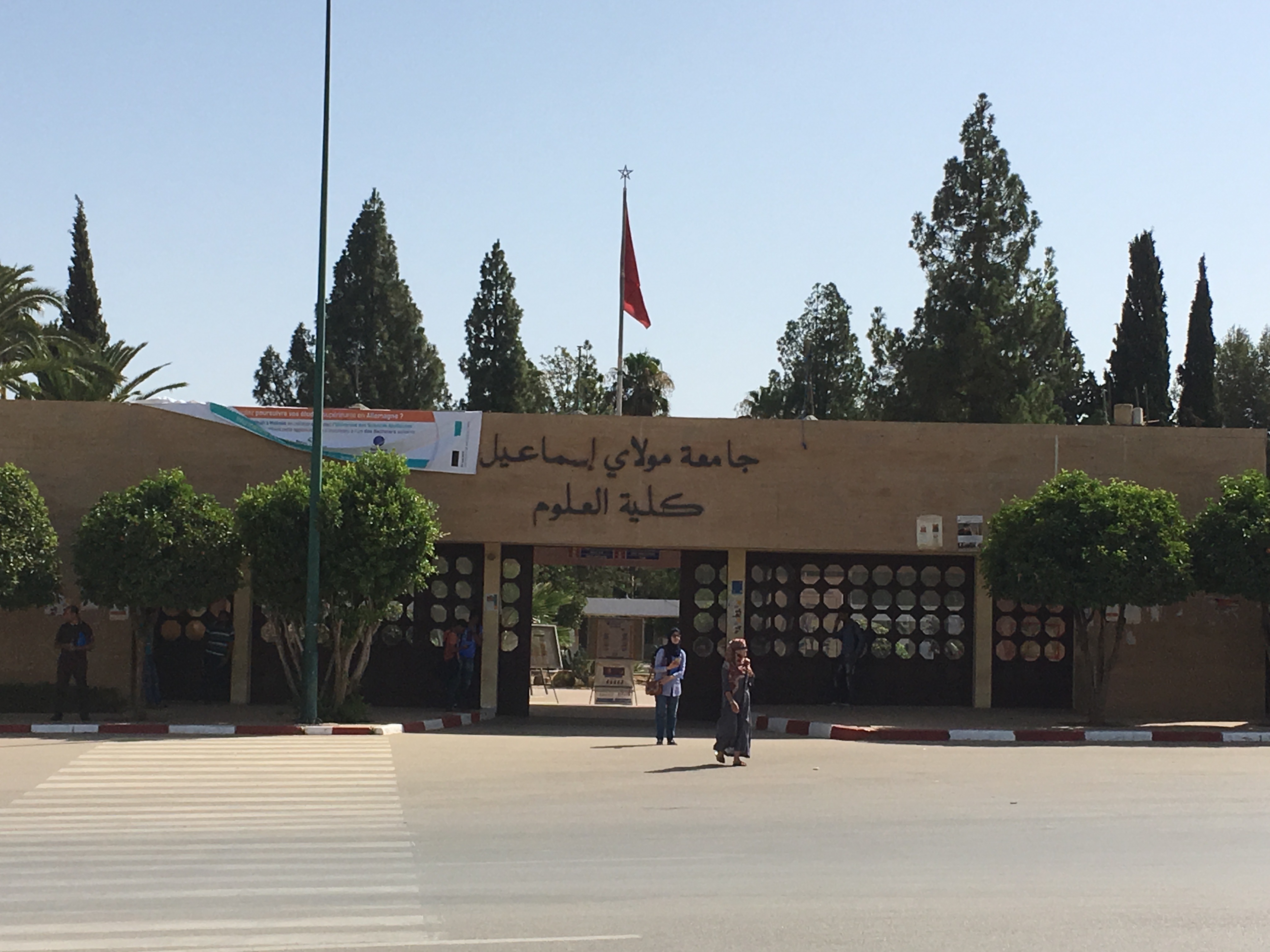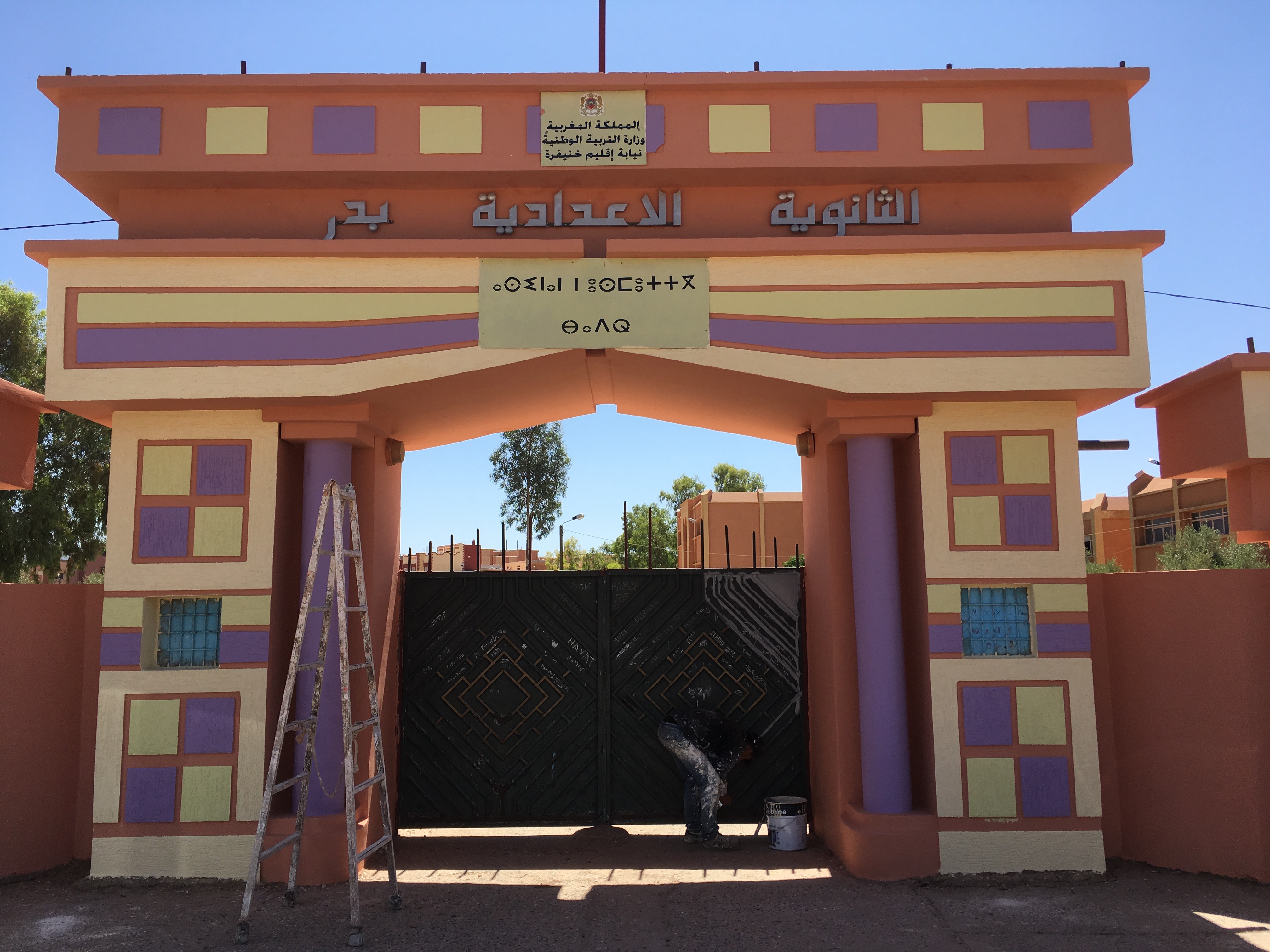
Jaouad Ed Daoudy is a member of an unlucky generation of Moroccan scientists. Graduating high school in the early 2000s, he studied secondary science in Arabic and was counted among the recent cohorts of Moroccans attending school after the subject was switched from French in the late 1980s.
But at the university, his specialty—physics—had never been switched to Arabic to begin with. A vestige of Morocco's colonial relationship with France, the language of Molière has remained important for commerce and diplomacy in the North African country, and university-level sciences were never considered for "Arabization."
So, Daoudy struggled with language his first year at university. He eventually progressed enough where he could read, write and communicate effectively in French. He then joined Morocco's corps of public school teachers,and returned to Arabic to teach high school students.
But his comfort was short-lived. In 2012, after five years of teaching, Daoudy decided to pursue a PhD. Though it didn't add much to his prospects as a school teacher, he loved physics and wanted to produce research.
PhD work, he discovered, was on another stratum. Instead of taking verbatim notes on lectures and textbooks in French, he was expected to engage with original research. That meant working in a third language: English. Over the last 30 years, English has been solidified as the lingua franca of scientific research; nearly 80 percent of the world's scientific publications are in English, according to one study. Morocco now requires science PhD students to publish at least one paper in English to graduate.
So Daoudy struggled to gain competence in yet another working language. Though he studied English in high school, he hadn't touched it since. After several years in the program, he can read and write, but not speak, English.
But this time his efforts had an absurdist quality to them. Required to participate in scientific conferences, he would create his visuals in English and speak in French. But at the same conferences, French academics visiting Morocco would give their presentations in fluent English. "It's embarrassing," he commented. "I'm presenting in their language and they present in another."
This is perhaps unsurprising, considering that English publications in Western Europe far outnumber those in national languages, and by a factor of almost 10:1 in France. In a focus group, Moroccan Master's students noted that the only time they come across scientific publications written in French, not English, is when the authors come from other former French colonies, like Algeria or Tunisia.
That said, by the same methodology, English publications outstrip those in French in Morocco as well, by a factor of almost 8:1.
Publishing original research is crucial for the careers of academics in Morocco and around the world. On a national scale, publication rates are also taken by organizations like the World Economic Forum as an indicator of economic innovation and competitiveness. According to one measure Morocco ranks 5th in Africa and 57th in the world, just behind Algeria and Indonesia.
While the experiences of Daoudy's "Arabized" cohort may be one of jarring transitions between languages, older generations have their own set of issues with English dominance. Now entering the twilight of their careers, there is less incentive for professors educated in the 1980s to learn and publish in a third language. The same focus group of students noted that their professors, many of them educated in France, also seemed to struggle with academic literature in English.
The Moroccan government is banking on new policy changes to smooth out these transitions for future generations. In addition to adding an English publishing requirement for doctoral students, the Ministry of Education has moved to begin instruction in French and English earlier into primary school. It has also created a program to teach high school science in French and English for those serious about pursuing higher education.
But it may take a generation or more for these changes to significantly affect Moroccan students' readiness to publish in English, in part, because building institutional capacity is a long-term project. For example, according to a Ministry of Education official, plans to teach high school science in English have been hampered by the availability of teachers able to do the job. At the primary level, teachers are specialized in either Arabic or French, and it is unclear that there are enough of them with the language skills to teach English right off the bat.
Yet the long-term trend in Morocco is certainly towards a growth of English. In the early 1990s the monarchy opened a small, English-medium college—Al Akhawayn University—which has grown into the country's most elite institution with MA programs in several sciences.
Students' enthusiasm has bolstered these trends. Despite the institutional constraints to expanding English, preferences are pretty clear. When a focus group of French-medium high school students was asked in which language they would study science if they could choose, everyone responded, "English."








